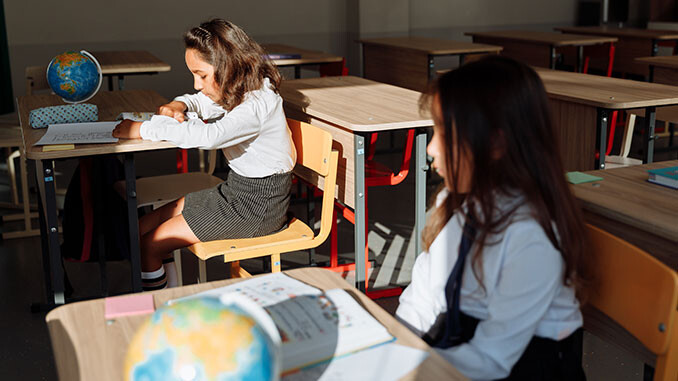
Here Are Some Tips to Help Decide and Help
Published: October 2, 2021
By: Dr. Rebecca Jackson
We now have about a month of school under our belts. How is everyone doing? Are your kids struggling, or do you know for sure?
Feeling confused or behind in the classroom can impact mood and behaviors. Noticing these behaviors just may help you tune in to areas of struggle for your child:
- Dislike of school – no one likes to do things you don’t feel good or successful doing. If your child is talking (more than usual) about a dislike of school, there is probably a reason for that dislike.
- Task avoidance behaviors during homework time. While not too many kids like sitting down to do homework, it’s a fact of life. If your child’s behavior flares up before or during homework time, and they pull out all the stops to get out of doing it, it may be their way of communicating the need for additional help and support.
- Increased homework load – bringing more work home, or taking longer than their peers to complete the work can be a sign that your child does not understand the work or the assignment. Connect with the teacher to know what the homework expectations are so you know what is on track and what is excessive for the amount of work, and time it takes to complete it at home.
- Low self-confidence and statements of defeat, “I’m stupid, I can’t do this, I give up.” It’s not uncommon to want to shut down when things get challenging, but pushing through until you grasp the topic can actually build confidence if you can make it through to the other side.
- Complaints of tummy aches – feelings of nervousness or anxiety can manifest in physical symptoms of discomfort.
- Making excuses for work – “everyone did really bad on this test, so it’s ok” or “this teacher is horrible.” It can be hard to admit when something is difficult and it’s easy to point the finger at someone other than yourself. If you notice your child is placing blame on others, stop to look and listen a little more closely to what is really going on.
How to Fix Them:
- The sooner you can identify areas of concern, the sooner you can employ strategies to help, and waiting for testing and data could take valuable time and lead to increased frustration and struggle in the classroom.
- Consider your child’s mood and behaviors around school and homework to help understand their level of comfort and confidence in the material they are learning.
- If you notice any of these actions and behaviors in your child, take the time to sit with them while they are doing their work, and be sure to check and review work before and after it gets turned in so you can see the areas they are missing.
- If your child is shutting down when it comes to challenging work it can be helpful to review content. Start with something they know and review so they can begin successfully, then build from a point of success!
Dr. Rebecca Jackson is currently the VP of Programs and Outcomes for Brain Balance, where she designs and implements programs focused on strengthening the brain to optimize human performance for a variety of ages and abilities. Jackson graduated from Life University as a Doctor of Chiropractic in 2001. You can find her recently peer-reviewed research in the Journal of Advances in Medicine and Medical Research 2021, Effect of the Brain Balance® Program on Cognitive Performance in Children and Adolescents with Developmental and Attentional Issues. Jackson has appeared on national broadcasts including ABC’s “The Doctors” and “NBC Nightly News with Lester Holt,” and has contributed to numerous national print outlets including Forbes, Business Insider, TODAY, and many more. https://www.brainbalancecenters.com/.
